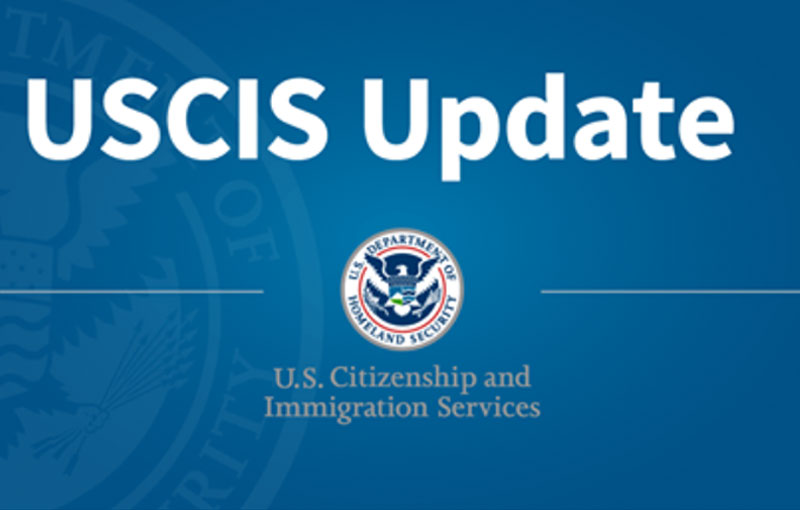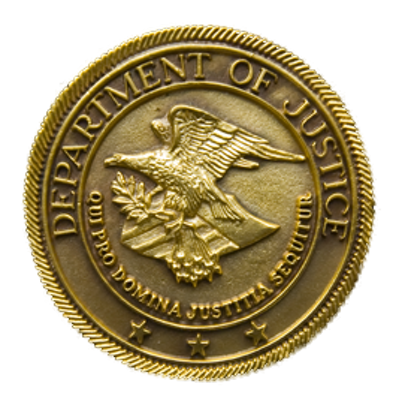West Palm Beach, FL. – On Monday, December 28th, Laura Luz Maria Torres Romero a/k/a Antonieta Mena, a/k/a Antonieta Vinkelried, a/k/a Antonieta Winkelried, of Lake Worth, Florida, the lead defendant in a $4 million scheme to defraud the US immigration and tax systems, pled guilty before U.S. District Judge Kenneth Marra, in the Southern District of Florida. Torres pled guilty to one count of conspiracy to commit immigration and mail fraud, one count of conspiracy to steal and launder government money, and one count of false statements to the US Department of Agriculture’s food assistance program. Co-conspirator Melanie Wilhelm, of West Palm Beach, previously pled guilty to the two conspiracy charges.
According to court documents, from approximately 2012 through March 2020, Torres, with the assistance of Wilhelm and other co-conspirators, operated a multiservice business, which provided immigration and other services to the public. The business operated under different names, including El Latino Multiservices, Inc., M&K Multiservices, Inc., L&L Document Services, Inc., and AYE Services, Inc. from different locations in Lake Worth and West Palm Beach, Florida. Torres was the true owner and controlled all aspects of the business.
Torres solicited clients primarily by word of mouth. Most of the clients who sought her assistance had illegally entered the United States many years earlier and were ineligible for asylum benefits. Most of her clients were from Guatemala or Honduras, did not speak English, had little formal education, and minimal knowledge of the immigration rules and procedures in the United States. Torres represented herself as an experienced and knowledgeable immigration document preparer, who could assist them with identifying the proper immigration program to secure legal status.
Torres would obtain background information from the clients, but never asked them if they had suffered persecution in their native countries. Although she had no information to support that the clients were eligible for asylum or other immigration benefits, Torres falsely prepared fraudulent asylum applications for her clients. Torres knowingly made up false and fictitious narratives of persecution the clients had purportedly suffered in their native countries. Most of the applications contained similar, and at times identical, stories of persecution.
Torres never showed the false and fraudulent asylum applications to the clients. Instead, she presented the clients with only the signature page and had them sign the asylum application in blank. More often, Torres, Wilhelm or another co-conspirator would simply forge the client’s name on the fraudulent asylum application. Torres never completed or signed the preparer section of the asylum application so that she could conceal from the United States Citizenship and Immigration Services (USCIS) her role in preparing the false applications. Torres, Wilhelm or another co-conspirator sent the false asylum applications to USCIS for processing.
Torres required the clients to pay up-front cash fees for her services. Torres’ fees varied from client to client and increased as the scheme went on, but typically ranged from $2,500 to $4,000 for the initial asylum application.
Torres knew the clients would be eligible to apply for employment authorization cards (“work permits”) if their asylum applicants were pending for more than 150 days. Torres routinely filed such applications for her clients, claiming that the clients were eligible for work permits based on the pending false asylum applications. Torres, Wilhelm or another co-conspirator forged the clients’ names on the fraudulent applications for employment authorization. Torres falsely listed her office address as the mailing address on the employment authorization applications so she would receive the work permits and all USCIS correspondence. When the work permits arrived, Torres demanded additional fees from the clients. If a client declined to pay the additional fees, Torres threatened to return the client’s work permit which, she claimed, would result in the client’s arrest and deportation.
Torres or a co-conspirator met with the clients at her office to prepare them for their asylum interviews. At the meetings, the clients saw the false and fraudulent asylum applications for the first time. Torres directed the clients to memorize the details of the false asylum claims and repeat them to the asylum officers. Torres warned the clients they would not be permitted to stay in the United States if they did not tell the asylum officer exactly what was written in their application.
During the course of the scheme, Torres collected more than $2 million in cash fees from hundreds of clients and filed approximately 1,000 false and fraudulent asylum and employment authorization applications. The false applications caused USCIS to issue work permits to hundreds of ineligible aliens. In addition, Torres, Wilhelm and their co-conspirators deceived and misled hundreds of clients by promising to provide them with legitimate immigration services and instead filing false immigration applications in their names and providing them with fraudulently procured work permits.
Throughout the immigration scheme, Torres and her co-conspirators obtained personal identifying information, including names, dates of birth, and social security numbers, from her immigration clients. Without the knowledge or consent of her clients, Torres used the information to prepare false and fraudulent tax returns, seeking significant refunds. The returns included one or more materially false statements, including false addresses, fake education credits, fictitious dependents, false childcare and earned income credits, and false business income, expenses and deductions.
Torres and the co-conspirators forged the clients’ names on the fraudulent tax returns and then submitted the returns to the IRS. In support of the false and fraudulent tax returns, Torres, Wilhelm and the co-conspirators created and submitted to the IRS false and fictitious documents, including fake leases, fake childcare receipts, and fake business receipts.
During the first few years of the scheme, Torres directed the IRS to direct deposit the fraudulent refunds into a TD bank account, which Torres opened using a stolen identity. Later in the scheme, Torres had the IRS mail the fraudulent refund checks to the “home addresses” listed on the returns. These “home addresses” were in fact properties owned and/or controlled by Torres. Wilhelm and the co-conspirators would retrieve the fraudulent tax refund checks from the home addresses listed on the returns and deliver them to Torres. Torres, Wilhelm and other co-conspirators forged the names of the clients on the back of the refund checks. To conceal her receipt of and control over the refund checks, Torres arranged to have a co-conspirator attorney in California launder the refund checks through her attorney trust account, in return for a 10 percent fee. The co-conspirator attorney issued checks drawn on her attorney trust account for 90 percent of the value of the refund check. At Torres’ direction, the co-conspirator attorney made the resulting checks for 90 percent of the proceeds payable to companies owned or controlled by Torres and then mailed the checks to Torres’ office. Torres, Wilhelm or another co-conspirator deposited the checks issued by the co-conspirator attorney into business accounts controlled by Torres. The monies from these checks were withdrawn from the Torres company accounts by ATM withdrawals, checks or wire transfers and used by Torres to benefit herself, Wilhelm and the other co-conspirators.
During the course of the tax and money laundering scheme, which ran from approximately 2011 through April 2019, Torres used the names, dates of birth and social security numbers of the immigration clients to file over 200 false tax returns with the IRS, seeking fraudulent refunds totaling approximately $1.8 million.
While Torres was collecting millions of dollars from the immigration and tax fraud schemes, she also applied for benefits from the Supplemental Nutrition Assistance Program (SNAP). She received SNAP benefits from at least as early as 2008 through 2020. To establish her continued eligibility for SNAP benefits, Torres submitted annual recertification applications to the United States Department of Agriculture, through the Florida Department of Children and Families. In the recertification forms, Torres knowingly and willfully made numerous materially false statements, including that her name was “Antonieta A. Mena,” that she was a US citizen, that she had received no income other than Social Security benefits, and that her deceased mother was a member of the household. Based on her false statements, Torres received approximately $67,000 in SNAP benefits for which she was not eligible, during the period 2008 through 2020.
At sentencing, Torres faces a maximum penalty of 15 years in prison. Wilhelm faces a maximum penalty of 10 years in prison. Both Torres and Wilhelm also will be sentenced to supervised release, penalties, and restitution. Torres’ sentencing hearing is scheduled for March 12, 2021, in West Palm Beach before the Honorable U.S. District Judge Marra and Wilhelm is scheduled for sentencing on March 5, 2021.
Ariana Fajardo Orshan, United States Attorney for the Southern District of Florida, Special Agent in Charge Anthony Salisbury of the U.S. Immigration and Customs Enforcement’s Homeland Security Investigations (HSI), Miami Field Office, and Tyler R. Hatcher, Acting Special Agent in Charge, Internal Revenue Service-Criminal Investigation (IRS-CI), Miami Field Office, made the announcement.
HSI Miami and IRS-CI Miami investigated the case. Assistant U.S. Attorneys Adrienne Rabinowitz and Ellen Cohen prosecuted this case.
A copy of this press release may be found on the website of the United States Attorney’s Office for the Southern District of Florida at www.usdoj.gov/usao/fls.
Related court documents and information may be found on the website of the District Court for the Southern District of Florida at www.flsd.uscourts.gov or on http://pacer.flsd.uscourts.gov, under case number 20-80072-CR-MARRA/MATTHEWMAN.
Source: https://www.justice.gov/usao-sdfl/pr/owner-immigration-business-pleads-guilty-defrauding-uscis-and-irs









